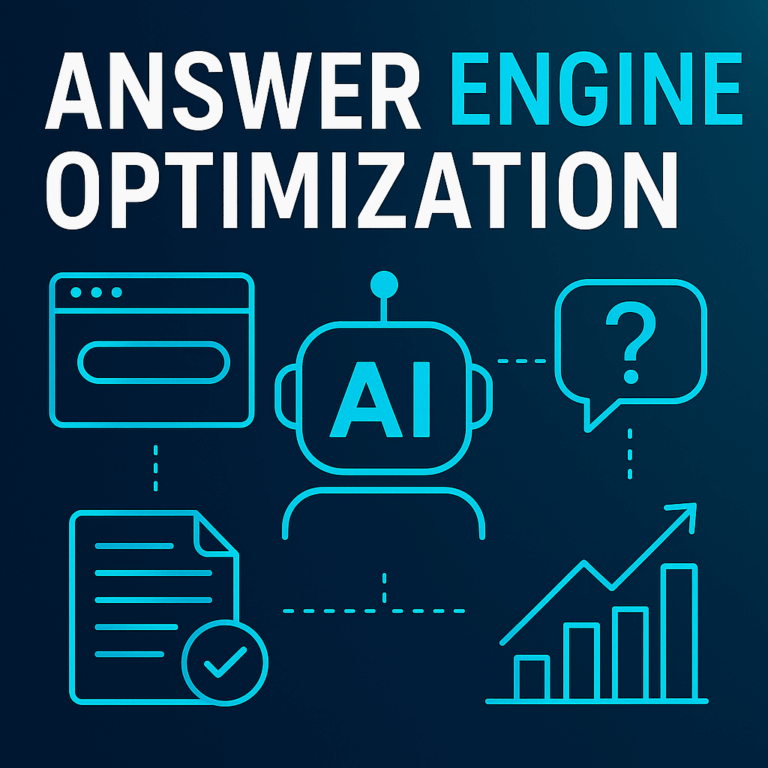Answer Engine Optimization (AEO): How to Earn Visibility in the Age of AI Answers
As AI-driven platforms like Google’s Search Generative Experience (SGE), OpenAI’s ChatGPT, Perplexity, and countless others become central to how users access information, search behavior is evolving fast. Increasingly, audiences aren’t scrolling through blue links—they’re receiving direct, synthesized responses from conversational agents. In fact, recent industry estimates suggest that four in ten Google searches now present an AI-generated answer before showing any organic result, and in some cases, they eliminate the traditional results page altogether.
This shift is more than a technological curiosity, it’s a fundamental change to how visibility works in digital search. While traditional SEO is about ranking pages in response to keyword searches, and Generative Engine Optimization (GEO) focuses on feeding content to large language models for verbatim citations, Answer Engine Optimization (AEO) addresses a new frontier: influencing how, and how often, your brand is mentioned inside the AI-generated responses users now rely on.

Why Answer Engine Optimization Demands Your Attention
How AEO Differs from SEO and GEO
SEO still plays a vital role in ensuring your content is indexed and ranked by search engines when users click through to explore.
The Foundations of a High-Impact AEO Strategy
Map questions, not just keywords. We begin by identifying the real, conversational questions your audience asks at each stage of the funnel, from “How much does [service] cost?” to “Is [platform] secure for regulated industries?” AI platforms and community-driven sources like Reddit, Quora, and Google’s People Also Ask provide invaluable question datasets.
Craft answer-first content. The structure of your content matters. Every key page should begin with a clear, direct answer in the first 50–75 words, optimized for citation. Follow that with detailed context. Use subheadings phrased as questions to help AI engines extract structured insights more efficiently.
Support claims with robust evidence. Large language models favor passages that cite data, link to reputable sources, and include verifiable facts. That means embedding primary data, quoting recognized experts, and using schema markup to reinforce context. Proprietary research and unique insights carry particular weight.
Use structured data to your advantage. Schema types like FAQPage, HowTo, and Speakable allow engines to easily locate and trust your answers. They help assign meaning to specific facts, such as pricing, specifications, and definitions, boosting your credibility in the eyes of AI.
Test and iterate across AI interfaces. Since generative answers are non-static, weekly testing across platforms like ChatGPT, Gemini, and Perplexity is critical. Braveheart continuously prompts these engines with your core questions to analyze which of your passages are cited, and where competitors might be gaining ground. We update, refine, and re-deploy your content accordingly.
Braveheart’s Answer Engine Optimization Methodology
Ready to Be the Name AI Mentions?
Let’s talk visibility—no clicks required.